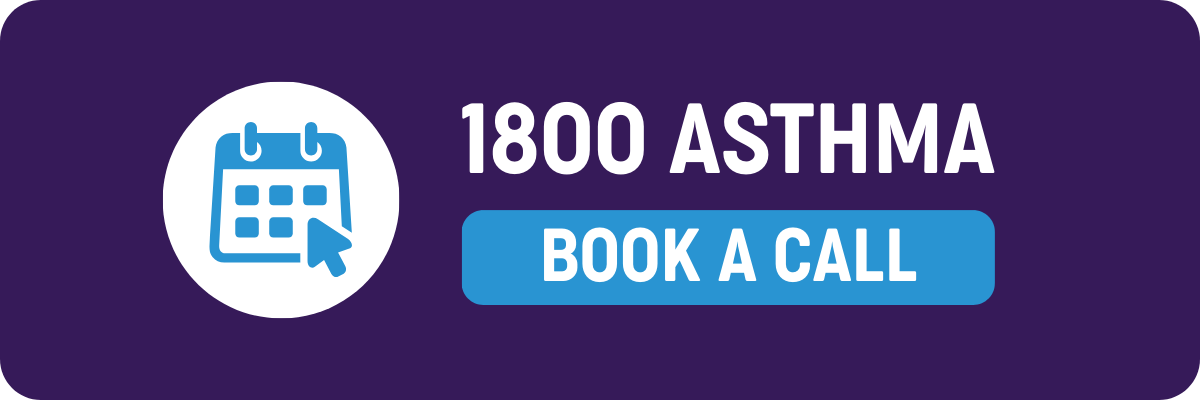Change in weather
Depending on the season, there are certain events or conditions that can trigger your asthma symptoms. This can include things like thunderstorms, flooding, extreme temperatures and poor air quality (from things such as smoke from bushfires, wood fires and wood heaters). We can’t always avoid these events, but we can try to reduce their impact.
Cold
Cold air is one type of extreme weather that can lead to asthma flare-ups. Cold dry air irritates the airways which can trigger asthma symptoms and make it harder for the lungs to clear themselves. So, people with asthma become vulnerable to triggers, and prone to asthma symptoms.
Winter can be challenging for people with asthma, but here’s how you can breathe better in cold weather.
Tips to manage your asthma in cold weather
- Take your preventer medicine regularly, even when well.
- Make sure you have an updated Asthma Action Plan on hand. If you don’t have an Asthma Action Plan, book an appointment with your doctor for an Asthma Review.
- If you’re outside, wear a scarf over your mouth and nose to warm the air you breathe.
- If exercising, avoid going out in the early morning or evening when the air is coldest and ensure you warm up and cool down.
- Check the weather forecast and plan ahead.
- Follow safe hygiene by practicing physical distancing, washing hands regularly and not sharing cups or food.
- Talk to your doctor or pharmacist about the recommended vaccinations for people with asthma, such as the annual flu and COVID-19 vaccination.
Heat
Some people with asthma get worse when the air is very hot and humid or very hot and dry. Big changes in temperature, like going from hot and humid outside to cold and dry inside, can also be a problem.
When it’s very hot, you can get dehydrated and your body works harder to regulate its temperature. This extra stress can cause inflammation in your airways and increase mucus production and airway tightening. These things can all make breathing more difficult.
Extreme heat can make asthma worse in other ways too. Hot weather can make the air quality bad, with more pollution and more pollen floating around. Humid conditions may also encourage dust mites and mould, which are common triggers for people with asthma.
Very hot days also mean a higher risk of bushfires and poor air quality due to smoke.
High temperatures can also affect the way your asthma medicines work. So, make sure your asthma inhalers stay cool, away from the sun.
Tips to manage your asthma in the heat
- Ensure you are managing your asthma well ahead of the hotter times of year, including using your preventer if prescribed by your doctor.
- Make sure you have an updated Asthma Action Plan on hand. If you don’t have an Asthma Action Plan, book an appointment with your doctor for an Asthma Review.
- Refresh your Asthma First Aid knowledge (including how to use reliever medicines in an emergency and when to call Triple Zero (000).
- Keep your inhalers handy and safely stored below 30°C and out of the light. Don’t leave your inhalers in the car or in the sun on hot days!
- Be aware that your asthma symptoms during hot days may be different from those you normally experience.
- Look out for worsening asthma symptoms, act promptly and seek medical help.
- Have a back-up plan for power outage for those heat-sensitive asthma medicines.
Tips to stay comfortable in the heat
- Stay hydrated. Drink plenty of water, even if you aren’t feeling thirsty.
- Avoid alcohol, hot drinks and sugary drinks
- Always carry a water bottle with you.
- Stay cool by using fans and air conditioning if you have them or go to a cool place like a shopping centre, library or someone else’s home.
- Control humidity with a dehumidifier if you have one, or the dry setting on your air conditioner (usually a waterdrop symbol).
- If you don’t have air-conditioning in your home, you can do the following:
-
- Use blinds or curtains to block direct sun.
-
- If it is cooler outdoors, open windows and doors to let in cooler air
-
- Wear clothes that are light, loose-fitting.
-
- Take cool showers or foot baths with cool tap water.
-
- Keep your skin wet using a spray bottle, damp sponge, or cool damp towel.
-
- Use an air purifier if you have one and limit indoor air pollution from things like fragrant candles and incense.
-
- When going outside, avoid the hottest hours of the day, wear light coloured, loose-fitting clothes and a hat, and keep to gentle activities if you exercise.
-
- Check the weather forecast and plan ahead.





 1800 278 462
1800 278 462
